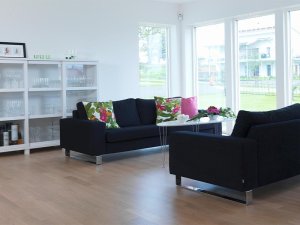What is vinyl flooring?
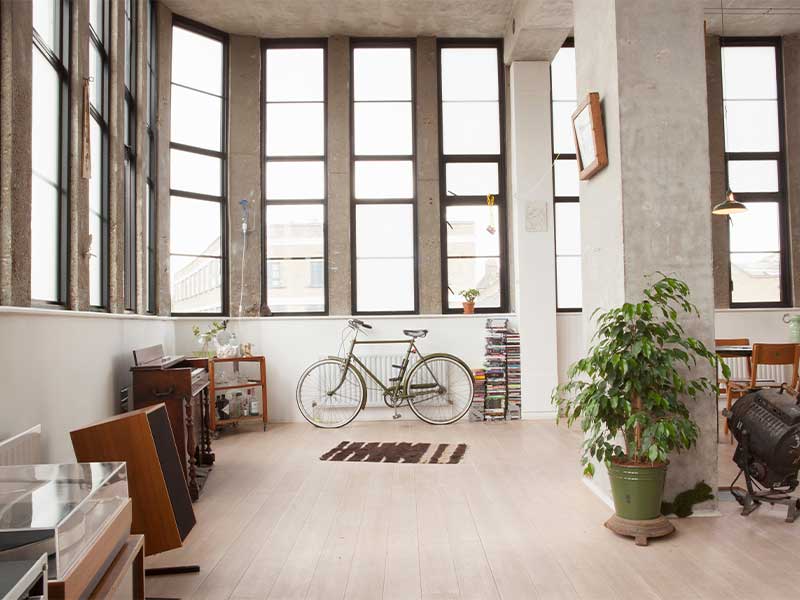
Over the past 30 years, vinyl flooring has been installed by many customers due to the development of the concept of environmental protection and the rising price of solid wood raw materials. Is it the right choice for your ? What different kinds are available? What factors should you consider before you buy?
We have some help for you here, please keep reading.
Classification
Vinyl flooring is a large category where you can find vinyl coil, vinyl sheet, vinyl tile, vinyl Planks, and also some thickened vinyl planks called Luxury vinyl (LVT or LVP). What do they specifically refer to?
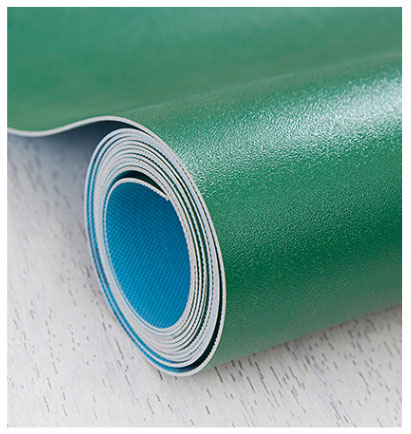
In terms of product structure, except for luxury vinyl flooring, all the others are one type of product, the difference being in the size and decorative layer and backing.
Vinyl rolls are larger in size and are usually decorated with stone patterns or single colors that are not easily found to be repeated. Normal vinyl rolls are thinner and require an adhesive to be applied to the floor to hold them in place. To make the adhesive adhere easily, the backing is usually made of fiberglass, which makes it less likely to be removed and recycled. Also because of the thinness, any number of dips and bumps will be reflected on the surface of the floor and the customer will need to spend extra money and time to create a smooth horizontal surface to lay it on.
The above features are also reflected in vinyl tiles and vinyl planks, the difference being that vinyl tiles are decorated with a tile-like pattern and made to a similar size as tiles, and vinyl planks are decorated with a wood pattern and made to the size of wood flooring. Of course, the manufacturer can also make them according to your design, which is very easy to do today with the perfect digital printing technology.
Vinyl roll is very large in size and the joints are welded with vinyl, so the entire laying area is completely impervious to water, making it ideal for installation in wet rooms.
The vinyl tile and vinyl planks have joints between each piece of flooring, so water can enter the floor and create dirt and bacteria there.
This is different from vinyl flooring that has a core and is installed using a tongue and groove system, which we call Luxury vinyl flooring. in terms of price, Luxury vinyl flooring is higher than vinyl flooring. this makes vinyl flooring easily affordable.
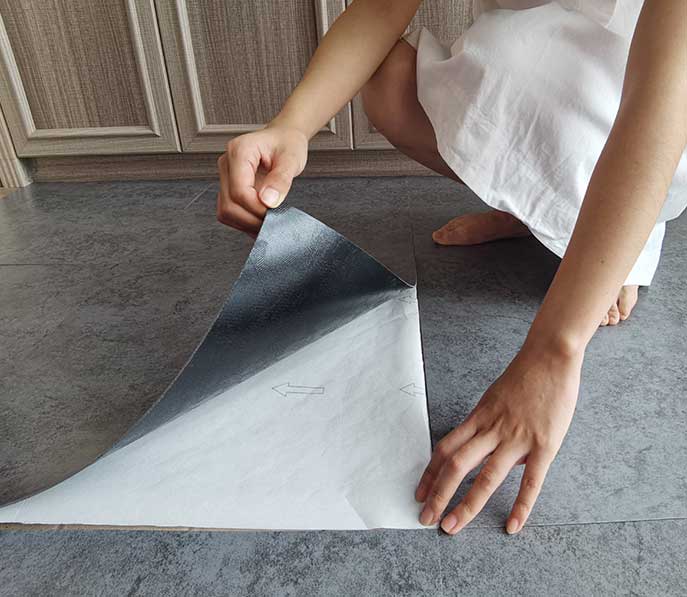
Pros
One of the reasons why vinyl flooring is widely used is that it has excellent product characteristics that distinguish it from other flooring.
Waterproof, one of the major advantages of vinyl flooring, after properly treating the installation surface, vinyl flooring is very suitable for installation in bathrooms, bathrooms, kitchens, laundry rooms, basements and other rooms.
Wear resistant, vinyl flooring is made of multiple layers, similar to laminate flooring, with a durable wear layer on the surface.
Maintenance-free, no need for special maintenance, just scrub with water when dirty.
Feeling comfortable, because vinyl flooring has a certain elasticity, very suitable for use in the dance room, yoga room, etc.
Cheap, due to the cheap and stable supply of raw materials, the price of ordinary vinyl flooring is generally cheaper than other flooring.
cons
At first these disadvantages went unnoticed and gradually manifested themselves as the research progressed.
Not eco-friendly. One study found that children in homes with all vinyl floors had 15 times more benzyl butyl phthalate metabolite in their urine than those from homes without this type of flooring. This chemical has been linked to skin irritation and reproductive and respiratory disorders. Even low-VOC options, however, will contain some toxic chemicals, like phenol. These can build up in even a well-ventilated room. And they can find their way into the human body.
Non-fire resistant. If you’re unfortunate enough to experience a fire in your home, vinyl flooring can cause more problems. The hot material can release hydrogen chloride, a toxic gas that can be fatal if inhaled. And because the vinyl is impermeable to water, it can be very difficult to extinguish once it’s alight.
Hard to remove and recycle. Vinyl flooring can last for many years. But at the end of its life, there are very few recycling facilities. Again, because of the glue, it is very difficult to remove from the floor and in order to do this you need to call in a professional.
Installation advice
There is no doubt that vinyl rolls need to be used in conjunction with an adhesive, the right adhesive will be more environmentally friendly and it is advisable to seek help from an experienced person.
Vinyl tiles and vinyl planks usually have an adhesive backing attached. Perfect for DIY. you are free to play with it as you like.
Please leave the flooring indoors for 24 hours before installation to allow it to acclimatise to the interior.
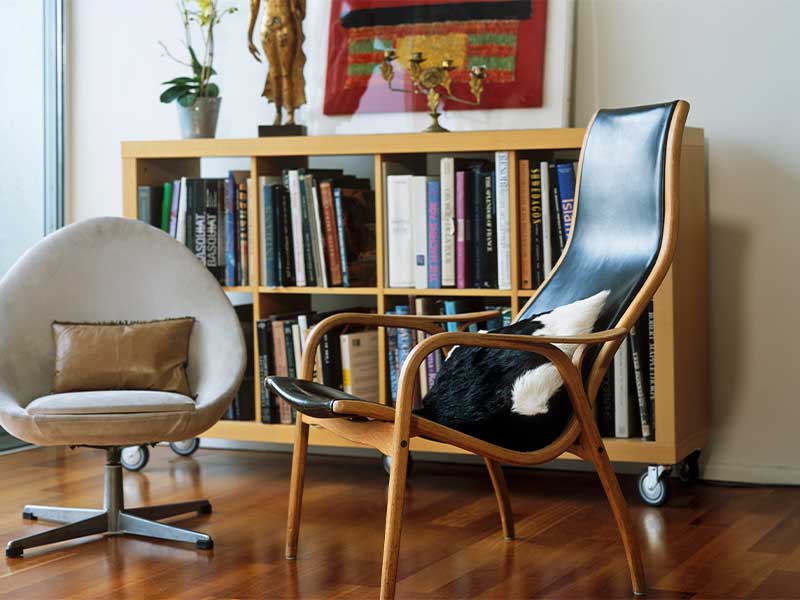
Better choice
If you are looking for a more environmentally friendly vinyl flooring, luxury vinyl flooring is a great choice, and of course there is also SPC flooring by Dishoverflooring, which has many benefits that make it one of the most popular choices nowadays.


